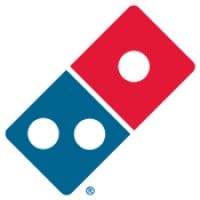
Domino's
Domino’s is a purpose-inspired, performance-driven company powered by exceptional people who are committed to feeding the power of possible—one pizza at a time. Founded in 1960 with a single store in Ypsilanti, Michigan, Domino’s has grown into one of the most recognized and leading pizza brands in the world. Today, we rank among the top public restaurant brands globally, with more than 21,700 stores across 90+ markets. Our system is built on the strength of independent franchise owners, who operate 99% of Domino’s stores worldwide. Together, we’ve pioneered innovations that have transformed the pizza and delivery industries, setting new standards for convenience, quality, and customer experience. We are committed to safely and responsibly serving our customers and giving back in the communities where we live and work. Interested in joining the largest pizza company in the world? Domino’s offers a variety of incredible opportunities—from store-level roles to supply chain positions to corporate careers. We are an opportunity company, committed to helping our team members grow, thrive, and achieve their goals. Browse U.S. career opportunities at jobs.dominos.com.






